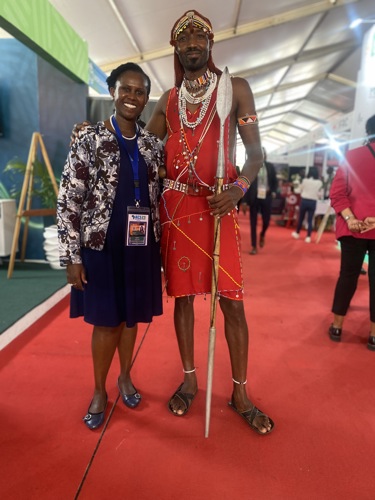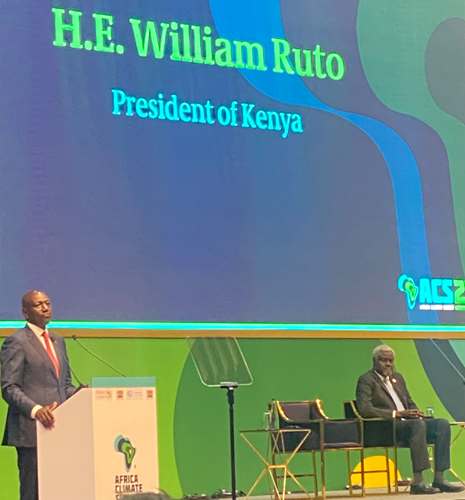Africa contributes less than 4% in carbon emissions globally but has been the most affected by climate change. We are now facing dry rains in West Africa, severe drought in the horn of Africa, destructive cyclones and floods in the south, and deserts expanding daily at alarming rates across the continent.
Considering this, we can no longer afford to be relegated to the backseat of climate change discussions. And so it was refreshing to hear at the inaugural Africa Climate Summit H.E. Kenyan President Ruto calling on the continents’ leaders – both elected and unelected – to be in the driving seat of negotiations. Africa can no longer be a victim. On the contrary, due to our vast natural resources, Africa has the largest potential to play a critical role in combating global warming.
I had the pleasure of representing NIRAS at the Climate Summit on 4-6 September, a high-profile event with 26 African heads of state, 14 donor governments, civil society, multilateral banks, foundations, UN agencies and the private sector in attendance. I also participated in a panel session on the first day of the summit in the Green Business Building networking event. This was a networking reception hosted by the UK and US governments for private sector leaders to discuss eco-friendly green business building approaches in Africa through a plenary and networking session.
The three-day event – hosted in my home city of Nairobi by the Government of Kenya and the African Union – also included representatives from youth and indigenous groups, amongst other stakeholders.

Florence with a member of the Maasai Community, an indigenous Nilotic ethnic group inhabiting northern, central and southern Kenya and northern Tanzania.








